

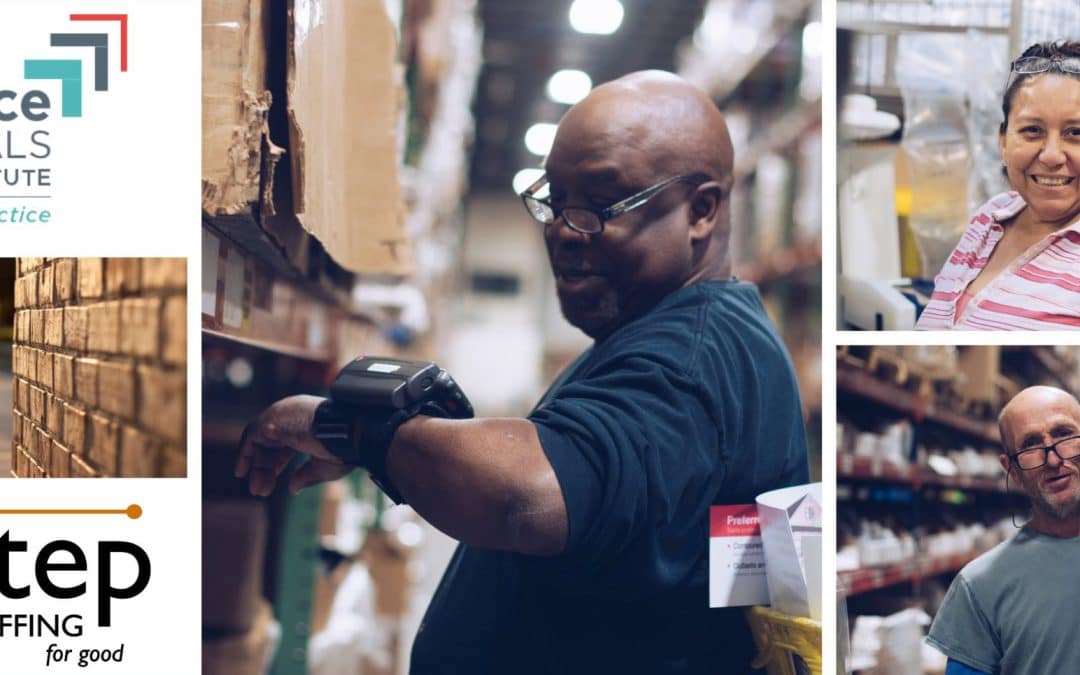
Impact in Action: WPTI and First Step Staffing are Getting People Back to Work
Earlier this year, the Sorenson Impact Foundation announced the recipients of the 2020 Equitable & Resilient Recovery Grant program. In a time where access to employment and quality jobs is vital, we want to highlight the work of two of those grantees who are making strides in workforce development: First Step Staffing and Workforce Professionals Training Institute.
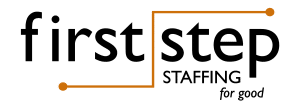
First Step Staffing has a vision to become the jobs solution for America’s homeless. CEO Amelia Nickerson described their work as “embracing the importance and dignity of work and believing that income is a critical component on the path out of poverty and homelessness.”
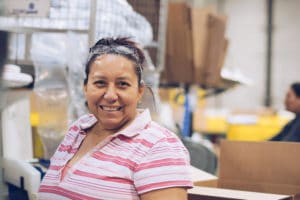 “Prior to the COVID-19 pandemic, homelessness was already on the rise, and is now expected to grow more than 40% over the next three years as Americans face job loss, eviction and more,” commented Nickerson.
“Prior to the COVID-19 pandemic, homelessness was already on the rise, and is now expected to grow more than 40% over the next three years as Americans face job loss, eviction and more,” commented Nickerson.
The research is clear – men and women of color and those living in poverty have been disproportionately affected by the current health and economic crisis. Jobs will be an essential piece of our nation’s recovery.
As the largest alternative staffing agency in the country, First Step is prioritizing job placement and training for those that have been most disenfranchised from the workforce. Support from the Sorenson Impact Foundation this year helped First Step to launch a five-year effort to expand its mission into new markets while also increasing the supportive services offered to its clients. Over the next five years, First Step will reconnect thousands of men and women to the workforce, pay millions in earned wages, and empower individuals to become active members in their communities.
FIRST STEP’S WORK IN ACTION
After serving 24 consecutive years in prison, Mr. Hightower was released with a bus ticket to his last known address. In 24 years a lot had changed. The entire outside world was different from when Mr. Hightower remembered in 1996.
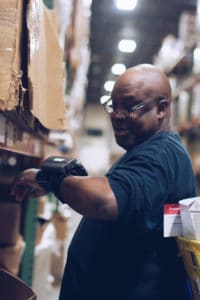 Not only did he not have a phone to call someone for help, he had no one to call. He roamed the streets for seven days searching for a place to rest his head at night. Someone he met along the way recommended he come to First Step. When staff arrived that morning, Mr. Hightower was waiting outside of our doors, soaking wet; he had walked six miles in the rain to get to First Step Offices “first thing in the morning.”
Not only did he not have a phone to call someone for help, he had no one to call. He roamed the streets for seven days searching for a place to rest his head at night. Someone he met along the way recommended he come to First Step. When staff arrived that morning, Mr. Hightower was waiting outside of our doors, soaking wet; he had walked six miles in the rain to get to First Step Offices “first thing in the morning.”
Both First Step’s job coaches and support services specialists met with Mr. Hightower, and they determined that he was not yet ready to work. He did not have an up- to-date state issued ID, he had some medical issues arise while incarcerated that needed to be further addressed, and he was still mentally reeling from the shock of the world around him being so different than what he remembered and knew.
Immediately, First Step’s Support Services team secured temporary shelter for Mr. Hightower. Next, they connected him with the First Step Disabilities Services team who helped him secure SSI benefits so he could support himself while getting back on his feet. First Step then gave him food and provided transportation to his temporary housing.
Over the next week, the First Step team worked with Mr. Hightower daily to assist him with getting a new ID, making medical appointments, helping him navigate public transportation and learning more about what he wanted to do once everything was sorted out. He said he wanted to work.
Four months later, Mr. Hightower came back to First Step, on his own, via public transportation. He had been moved to transitional housing and had spent most of his time getting healthy so he could get to work. He is coordinating with First Step’s job coaches on part-time employment and he is already talking about moving up into full time.
Workforce Professionals Training Institute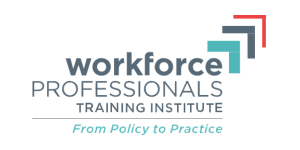 (WPTI), a workforce development organization in New York City, has teamed up with Salesforce.com and Arkus Inc. to bring digital transformation to the workforce development sector first in New York City, and eventually across the country.
(WPTI), a workforce development organization in New York City, has teamed up with Salesforce.com and Arkus Inc. to bring digital transformation to the workforce development sector first in New York City, and eventually across the country.
“While online-training has long been the norm in many industries and for many job-seekers and employees, there have been tremendous lags in bringing these capabilities to lower income people often living in resource-deprived neighborhoods,” says Sharon Sewell-Fairman, CEO of WPTI.
During the pandemic, WPTI pivoted to remote operations and quickly adapted its face-to-face, experiential style for its training, consulting and systems building programs to a virtual format. As a result, they were able to respond to the immediate and changing needs of community-based workforce organizations in the short term. Now, Sewell-Fairman says that “[they] are providing training and capacity building to help other community-based workforce organizations adapt their job training and education programs and infrastructure to better serve low-income jobseekers in this new environment.”
Sewell-Fairman explained that the COVID-19 pandemic hit New York very hard with resulting unemployment rates nearly twice the national average. Several core workforce sectors, including hospitality, food service, transportation, and retail, were decimated. And approximately 69% of layoffs hit workers of color, who were already disproportionately clustered in lower-income jobs.
 WPTI’s Digital Transformation Initiative will provide capacity building and training to community-based workforce organizations so they can assist unemployed New Yorkers by digitizing and delivering online training to build the skills and capabilities needed by displaced workers as they struggle to find their way back into labor markets.
WPTI’s Digital Transformation Initiative will provide capacity building and training to community-based workforce organizations so they can assist unemployed New Yorkers by digitizing and delivering online training to build the skills and capabilities needed by displaced workers as they struggle to find their way back into labor markets.
“Our approach focuses on bringing digital training capacity – both training content and training delivery systems – to job seekers by leveraging our network of over 600 organizations in NYC spread across all five NYC boroughs and with deep community commitments to economic equity,” shared Sewell-Fairman.
The partnership and support from the Sorenson Impact Foundation is aimed at helping workforce organizations and their staff to adapt practices to meet the changing needs of jobseekers and employers in this new age and a digital economy. This grant not only contributes to the development of WPTI’s own digital infrastructure, but the digital infrastructure, digital fluency, and virtual service delivery model of New York City’s workforce development providers, as they work to better prepare and connect an increased number of low income individuals to quality jobs and careers that pay family supporting wages post COVID-19.

Opportunity Zones: 101 – Video
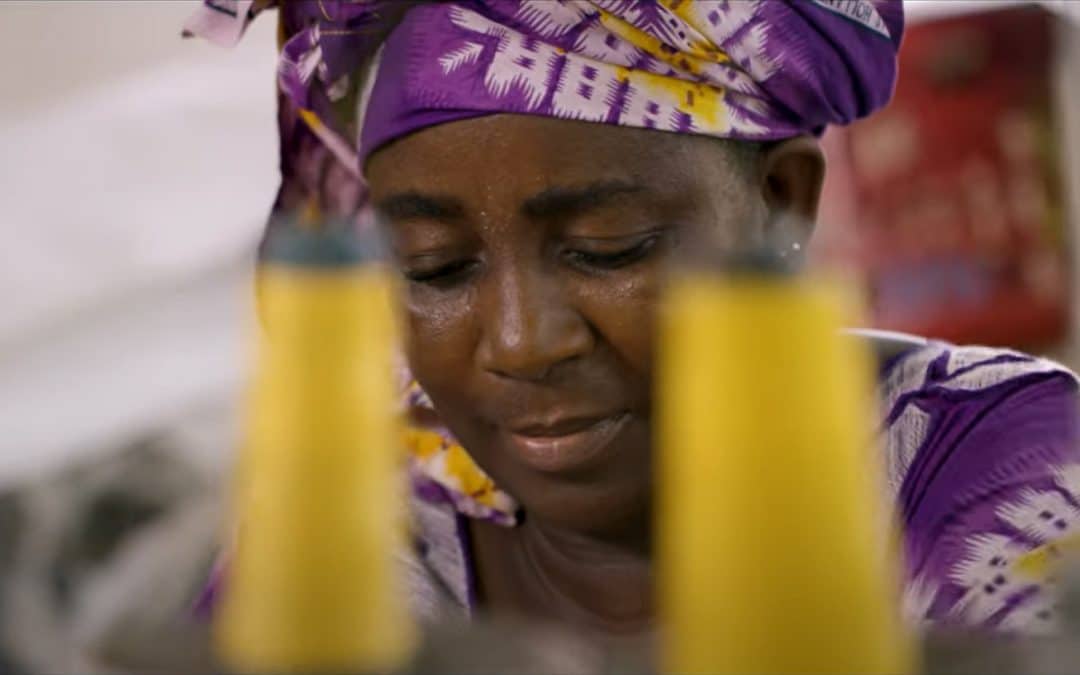
Liberty and Justice: An Entrepreneur Lifts Liberian Women and Children Out of Poverty
Inspired by the Women’s Peace Movement that ended Liberia’s ravaging civil war, social entrepreneur Chid Liberty — who was born in Liberia and raised in Germany and the U.S. — returned in 2010 to start the first fair trade apparel manufacturing company in Africa: Liberty & Justice. After a devastating outbreak of Ebola that virtually shut down the country and lost the company millions of dollars in contracts, see how Liberty and his workers pivoted their business model and kept the hundreds of precious jobs that Liberty had worked so hard to create.

Announcing the Equitable & Resilient Recovery Grant Program
The Sorenson Impact Foundation (SIF) is inviting potential grant recipients to propose solutions that can contribute to a more equitable and resilient recovery from the COVID-19 pandemic and resulting economic crisis. SIF is specifically targeting solutions that enable recovery through developing and growing businesses, as well as the communities they are in, to equitably rebuild coming out of the current social, health and economic crisis. We are targeting solutions across the following three focus areas:
- Equitable Access to Wealth Creation Through Entrepreneurship: Solutions that enable and empower successful entrepreneurship for underserved or underrepresented communities such as people of color, women and entrepreneurs in rural areas.
- Democratized Access to Capital and Community Investment: Solutions that enable more equitable access to capital for entrepreneurs in underserved or underrepresented communities. This focus area includes empowering and expanding community investment activity.
- Workforce Development: Solutions to help communities develop the skills and training required for the jobs of the future in a post-pandemic world.
Please download the complete Call for Proposals, including process and submission requirements on the foundation’s website.

Our Commitment to Action
As a family foundation established for the purpose of alleviating human suffering, we are outraged at the acts of brutality against the Black community and we stand firmly with those seeking to end racial injustice. The Sorenson Impact Foundation was created to save and improve lives through purposeful grants and impact investing, and we were founded with the fundamental belief that opportunity should be made available to all. As such, we have been gravely saddened, disappointed and frustrated to see over-and-over again that access to opportunity is not equal and that systemic barriers continue to keep some communities, particularly the Black and Brown communities in the U.S., locked out of opportunities. We are committed to taking action and being a part of the solution: as such, we have taken this time to listen, learn, self-reflect and evaluate where we can be better and do more to support racial justice and equality.
Over the last decade, as an impact investor we’ve been humbled and inspired by the entrepreneurs we support globally, 40% of whom are entrepreneurs of color, who have developed solutions that increase income, jobs, education, safety and healthcare for underserved communities around the globe and improve the lives of over 100 million people. But we recognize that we must, and we will, do more as a foundation and as part of the broader impact investing community to do better for the communities that we serve.
We believe that the first steps are listening, learning, and self reflection. Over the last few weeks we have learned from our Black and Brown partners in the impact investing and social entrepreneurship space about where they see opportunities for change. We are also asking ourselves the same questions that we ask each company we invest in: “how can we reduce barriers in order to create more opportunity that will have a greater and more equitable impact on the communities we serve?”
This process has led us to evaluate our own investment practices, internal operations and our role in the impact investing ecosystem. As such, we have developed an initial set of initiatives that we’re implementing to act with intentionality as we seek to be part of the solution and knock down systemic barriers to equality and opportunity.
- Deal Sourcing: Acknowledging that the “friends and family” based nature of start-up investing can lead to unequal access, particularly for entrepreneurs of color, we are committed to acting with intentionality to expand our sourcing network and ensure that we are more inclusive in our investment communities. As part of that, we are committed to developing stronger relationships with diverse networks including entrepreneurs from Black, Brown and otherwise underrepresented communities. Our team is actively working to assess and re-evaluate our sourcing relationships and we welcome additional suggestions ([email protected]).
- Supporting Platforms that Democratize Access to Capital: We are committed to advancing solutions that remove bias and systemic barriers from the entrepreneurship and investing sectors, sectors that we believe are key to building wealth and ultimately power in underserved communities. Two years ago we funded the development of a technology platform called Abaca that is being developed by Village Capital to democratize access to capital by connecting entrepreneurs and investors based upon a matching algorithm, replacing the traditional “friends and family” networks to which many do not have access. Abaca launched in March of this year in the midst of the start of the COVID-19 pandemic and we’re seeing entrepreneurs and investors finding each other and circumventing traditional channels. We are committed to continuing to support innovations like this that can disrupt the status quo, help remove blind spots for capital allocators, and dissolve historical and cultural barriers to opportunity.
- Actively Measuring and Tracking Our Progress: We believe that this movement isn’t just a moment in time, it’s the start of a new, and hopefully better, chapter of history. As such, we are committed to lasting change. To accomplish that goal, we will enhance our diversity and inclusion metrics and reporting across our portfolio by requiring that our portfolio companies measure their impacts on all people of color and asking that our grantees do the same. It is our hope that the positive changes undertaken by the impact investing sector will be a model for other sectors and help lead to a more equitable future overall.
- Engaging Diverse Perspectives: At present, our investment committee does not include representation from all of the communities that we serve, including the Black community in the U.S. This is an opportunity for us to grow and learn by broadening the composition of decision makers at our organization and bring more diverse perspectives to some of the most important discussions that we have. We are committed to expanding our investment committee to include more diverse representation. We believe that empowering more diversity in decision making leads to empowering more diversity in capital flows and ultimately, equitable opportunity and impact.
We believe that impact investing is a means to disrupt for good and create sustainable change that can enhance livelihoods and communities worldwide, building power and eradicating the barriers of inequality and injustice. And part of serving communities in need is being willing to continually listen, learn and grow so we can better affect change. We look forward to working alongside our partners, existing and new, as well as the broader impact investing community to continue to grow and determine how we can better support the communities who need us most by eliminating injustice and creating opportunity.
As we continue to learn and grow, we welcome your suggestions, ideas, and feedback ([email protected]).
In Solidarity,
Sorenson Impact Foundation Team